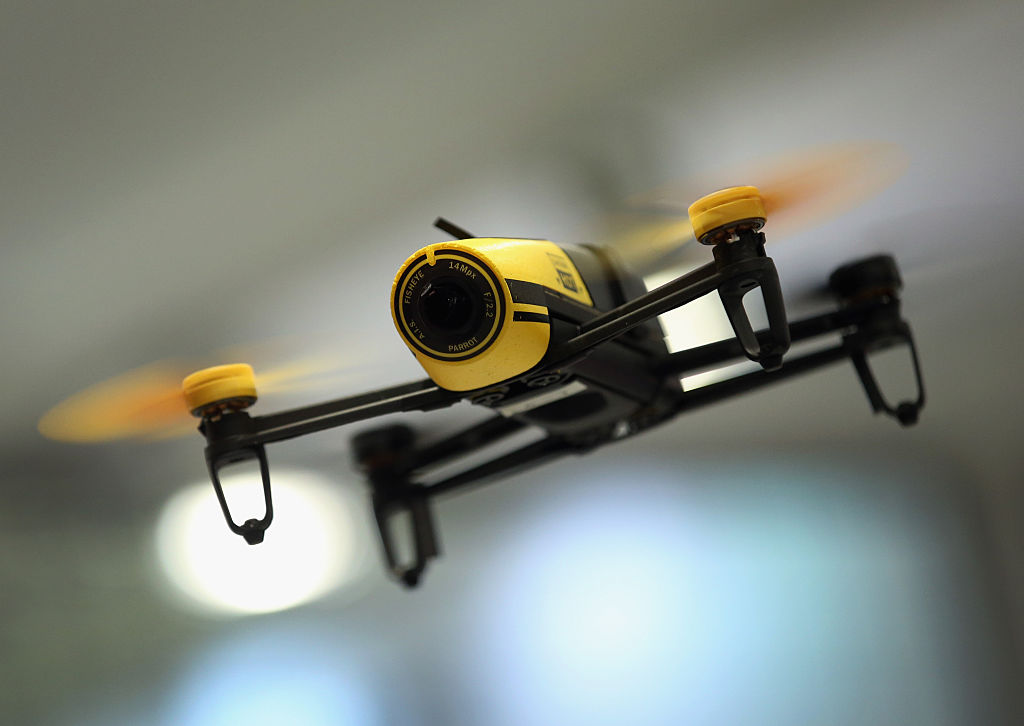ADF STAFF
In August, terrorists in Mali killed 42 Malian Soldiers in an attack that combined artillery and truck bombs with the use of airborne drones.
Across Africa, drones — both sophisticated military hardware and off-the-shelf hobby models — are changing the nature of conflicts. Experts fear that extremist groups are working to acquire them and use them for asymmetric attacks.
“Until recently, drones were used exclusively by state actors in Africa,” researcher Ezenwa Olumba recently wrote in an article published by the London School of Economics’ Firoz Lalji Institute for Africa. “Recent reports regarding the use of drones [by non-state actors] and their sophistication are concerning.”
Increasingly, whether through raids on military bases or direct purchases, drones have become part of terrorists’ strategy against national militaries. Groups such as Nigeria’s Boko Haram as well as groups tied to Middle East-based organizations such as Islamic State and al-Qaida are adopting the technology.
Many of the off-the-shelf drones come from China, which has refused to prevent their continued use by terrorist groups, according to the Dutch peace organization PAX.
In 2019, Somalia’s al-Shabaab used drones as part of its attack on a military base. Earlier this year, the Mozambican Army used an Israel-made counter-drone system to intercept and bring down three drones flown by extremist groups.
So far, terrorist groups in Africa have used drones primarily for surveillance and in support of forces on the ground. Unlike the Middle Eastern groups they emulate, African groups are yet to weaponize their drones in significant numbers.
But it is just a matter of time before that changes, according to security consultant David Peddle, a retired colonel with the South African National Defence Force. Peddle told the Institute for Security Studies he believes terrorist groups will eventually deploy swarms of low-cost, easily acquired drones against targets in Africa.
Experts say it’s too late for African nations to try to stop the wave of hobbyist drones from entering their countries. They note the easy with which terrorists acquire cell phones as an argument that the drone genie is out of its bottle.
“Like the prohibition of AK47s, any attempts by governments to ban the possession and use of drones by non-state actors will fail, Olumba wrote.
Rather than ban drones, experts recommend a two-pronged approach. First, monitor imports for large purchases while requiring drones to be registered with the government. Second, increase the deployment of technologies that can jam a drone’s ability to navigate or communicate with its operator — a tactic that frequently forces it to return to its base or drop to the ground.
“This approach will involve tapping into the talent of upcoming amateur drone enthusiasts and providing them with access to global drone education, then employing them in departments at home to deal with domestic threats,” Olumba wrote.
Governments should make use of young, tech-savvy experts before the terrorists do, Olumba warned.
The fear is that groups such as Islamic State West Africa Province will move forward with weaponizing their drones for attacks, according to PAX’s 2021 report Remote Horizons, which looked at the use of drones in conflicts across Africa.
Experts are also concerned about the use of 3-D printing technology allowing individuals to build drones with little oversight.
Drones are “transforming business, agriculture, humanitarian relief and medicine in Africa,” South Africa-based analyst Karen Allen wrote recently for the Institute for Security Studies. “At the same time, the continent presents a vulnerable environment where weaponised drones may be tested and used by militaries and insurgents alike.”

